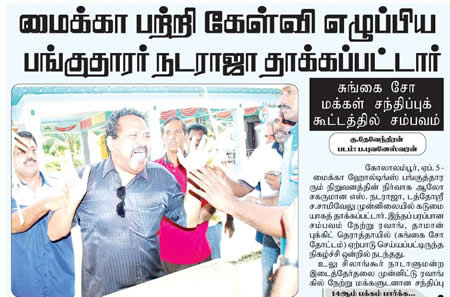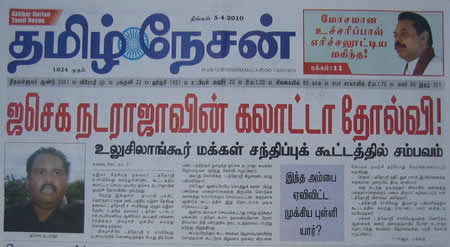(CNN) -- Twelve miners died Monday and more than a dozen were unaccounted for after an explosion erupted inside an underground mine in Raleigh County, West Virginia, the mine's parent company said.
Another 21 miners were injured in the blast at the Upper Big Branch Mine, according to Michael Mayhorn, emergency dispatcher for Boone County, which was called in to assist in the response.
The explosion apparently occurred during an afternoon shift change, witnesses and officials said.
At least 20 ambulances and three helicopters were dispatched from surrounding counties, and the state medical examiner was heading to the scene, Mayhorn said. At least one miner was evacuated by helicopter, according to Mayhorn.
Don Blankenship, the chief executive officer of Massey Energy Co., which oversees the mine, said in a statement that the company is "working diligently on rescue efforts."
"Our prayers go out to the families of the miners," he said. "We want to assure the families of all the miners we are taking every action possible to locate and rescue those still missing."
The explosion happened about 4:30 p.m. at Massey Energy's Performance Coal Co. mine in Whitesville, West Virginia, 30 miles south of Charleston, West Virginia, CNN affiliate WCHS reported.
The cause of the explosion was not immediately known, but methane gas has been blamed in several deadly mining accidents in recent years, including the 2006 explosion at the Sago mine, also in West Virginia, that killed 12 people. Five miners in Harlan County, Kentucky, were killed five months later in a methane gas explosion in Kentucky Darby Mine No. 1.
West Virginia Gov. Joe Manchin, however, said spring is an unusual time of year to see such explosions, which typically occur in winter as barometric pressure changes occur inside mines.
Manchin said he had spoken to Blankenship, who told him that the mine was equipped with rescue chambers, a safety measure put in place following several deadly accidents in 2006. The chambers are stocked with such supplies as first-aid kits and oxygen tanks in the event of an emergency.
"We're very hopeful that the miners who are missing were able to make it to those rescue chambers," said Manchin, who was on his way to the site.
Manchin also spoke to President Barack Obama, who offered his condolences and federal government assistance in the rescue effort.
Miners paced outside the mine shaft, trying to help emergency responders treating their injured colleagues, said Shawn Kline, a reporter for CNN affiliate WVVA.
"The look of worry is on just about everyone's faces," Kline said as dozens of fire trucks, ambulances and police cars streamed into and out of the site.
Eric Martin, who works the day shift at the mine, told WVVA that his father is one of the missing.
"It's like I got hit in the gut right there real hard (and) I just keep getting hit," he said.
At least one miner was evacuated by helicopter and two others by ambulance, officials said.
CAMC spokeswoman Elizabeth Pellegrin said the hospital received one person from the mine via a helicopter at 6 p.m. That patient is getting treatment in the hospital's intensive care unit, she said, declining to elaborate on the person's injuries.
Sen. Jay Rockefeller, D-West Virginia, said in a statement Monday that he is "working with state and federal officials to get as much information as possible and ... doing all I can to help make sure all resources are made available for this rescue effort."
Massey Energy Co., based in Richmond, Virginia, has operations in West Virginia, Kentucky and Virginia. It is the largest coal producer in Central Appalachia, it said in a statement.
Three other deaths have happened in the Upper Big Branch Mine in the past 12 years, according to federal records.
In 1998, a man was killed when a beam he was constructing collapsed; in 2001, a worker died after a rock fell on him; and in 2003, an electrician who was repairing a shuttle car was found dead, according to the Mine Safety and Health Administration.
Monday's explosion is the latest in a string of problems for Massey Energy, which operates 44 underground and surface mines and controls 2.2 billion tons of coal reserves in West Virginia, Kentucky, Virginia and Tennessee, according to the Environmental Protection Agency and Massey's Web site.
It's like I got hit in the gut right there real hard (and) I just keep getting hit.
--Eric Martin, miner
The company has been fined for several incidents, some fatal, at its facilities in recent years, including a 2006 fire that killed two miners in Aracoma Coal Company's Alma Mine No. 1. Aracoma is a division of Massey. The company pleaded guilty to 10 criminal charges in connection with the fire and was fined $2.5 million in 2009.
In 2000, a coal sludge impoundment owned by Massey Energy broke into an abandoned underground mine, oozing more than 300 million gallons of coal waste into tributaries in eastern Kentucky.
Also in 2000, a series of accidents at Massey facilities killed eight miners during the course of the year, according to Davitt McAteer, former director of the Mine Safety and Health Administration during the Clinton administration.
"Massey has had difficulty with their accident records and their numbers of citations and penalties that have been issued against them," McAteer said. "There is a problem here, and it's a problem that we hoped had gone away."
A post on the Massey Web site touts the company's 2009 safety record, saying it "marked the sixth consecutive year and the 17th year out of the past 20 years in which Massey's safety performance was stronger than the industry average."
The U.S. mining industry in 2009 saw its safest year in the history of American mining with 18 deaths. Prior to Monday's explosion, two deaths had been recorded for 2010.











 By Athi Shankar - Free Malaysia Today
By Athi Shankar - Free Malaysia Today














 Ibrahim Ali (gambar kiri) juga menuduh bahawa Gerakan heboh membuat kenyataan kontroversi untuk mengembalikan sokongan masyarakat Cina kepada dirinya. Dari kaca mata ahli parlimen Pasir Mas yang "bebas" ini, Gerakan berbuat demikian demi kepentingan politik dirinya kerana parti komponen BN ini sedang bersaing dengan DAP.
Ibrahim Ali (gambar kiri) juga menuduh bahawa Gerakan heboh membuat kenyataan kontroversi untuk mengembalikan sokongan masyarakat Cina kepada dirinya. Dari kaca mata ahli parlimen Pasir Mas yang "bebas" ini, Gerakan berbuat demikian demi kepentingan politik dirinya kerana parti komponen BN ini sedang bersaing dengan DAP. Walau bagaimanapun, kedua-dua Teng dan Low (gambar kanan) enggan meminta maaf. Ketika mengulas isu ini, Ibrahim Ali memberitahu MerdekaReview, "Terpulanglah kepada mereka untuk memohon maaf atau tidak. Rakyat akan menilai siapa yang betul. Akhirnya, orang tahu Tun (Mahathir) adalah rasis atau tidak."
Walau bagaimanapun, kedua-dua Teng dan Low (gambar kanan) enggan meminta maaf. Ketika mengulas isu ini, Ibrahim Ali memberitahu MerdekaReview, "Terpulanglah kepada mereka untuk memohon maaf atau tidak. Rakyat akan menilai siapa yang betul. Akhirnya, orang tahu Tun (Mahathir) adalah rasis atau tidak."



